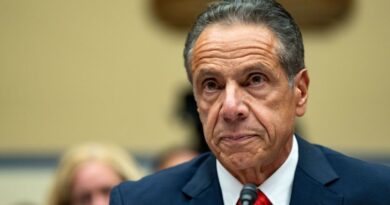Fact check: COVID-19 vaccines won’t alter recipient DNA; frontline workers have suffered directly from the virus

A post making a series of false claims about the novel coronavirus pandemic has been circulating online. The 1060-word post, copied by various different accounts, contains a mix of misinformation, opinion and claims hinting at conspiracy theories.
Examples of the post can be seen here and here . This article will address only the primary claims.
“THE COVID VACCINE IRREVERSIBLY CHANGES YOUR DNA”
The post claims: “All of those considering taking… this vaccine…You recognise that this permanently and irreversibly changes your DNA?” This is false. Several COVID-19 vaccines use a new technology, but will not change DNA. A “conventional” live vaccine contains a weakened version of the living virus or bacteria, enabling the body to develop immunity (here).
Some of the vaccines for the novel coronavirus are called RNA or mRNA vaccines, because they involve the injection of a small part of the virus’s genetic code (RNA) to stimulate immune response in a patient without an infection (here).
Reuters has previously explained why these new vaccines will not alter the recipient’s DNA (here).
Gavi, the Vaccine Alliance, has further information (here). It says: “mRNA isn’t the same as DNA, and it can’t combine with our DNA to change our genetic code”.
“GPS ARE NOT DYING”
The post goes on to claim: “If you still think Covid is real and very dangerous then ask yourself these questions: Why are GP’s not isolating? dying?”
The UK’s general practitioners (GPs) have been directly impacted by the virus. General practices changed the way they operated in March to reduce the risk to doctors and patients. The medical newspaper GPonline reported in November that health secretary Matt Hancock told MPs that 45% of GP appointments were being delivered remotely, while the Royal Collee of General Practitioners reported that research showed around two thirds of patient contacts with GPs in the week beginning 9 November were via telephone or video consultation (here).
Despite these efforts, GPonline reported in April that an estimated 2,000 GPs were self-isolating due to COVID-19 (here). In October, the publication reported that more than three in five GPs said they or a colleague had been forced to self-isolate within the past fortnight (here).
Coronavirus has also killed several GPs. Welsh doctor David Wood became the 13th GP to die after contracting COVID-19 in September, according to GPonline (here) and the publication Pulse (here).
The British Medical Journal has published a memorial for UK doctors across different professions who have died of COVID-19 www.bmj.com/covid-memorial .
“WHAT ABOUT FRONTLINE STAFF, POLICE OFFICERS AND BUS DRIVERS?”
The post continues to ask: “Why are frontline staff not isolating? dying? Why are police officers not isolating? dying? Why are bus drivers not isolating? dying?”
Again, individuals working in these occupations have been affected. Doctors’ Association UK highlighted the suffering of frontline NHS workers during the pandemic in an article with the New York Times, writing on Dec. 17 that 650 health care workers had died (here).
Analysis from the Office for National Statistics (ONS) looking at the period from March to May found that among health care workers – including occupations such as doctors, nurses and midwives, nurse assistants, paramedics and ambulance staff, and hospital porters – men had a statistically significant higher rate of death involving COVID-19 compared with the rate of death involving COVID-19 in the general working population. Health care workers continue to suffer, with an emergency nurse passing away in Essex on Dec. 15 (here).
Police officers have also been affected. ONS data for England and Wales published in June showed that the deaths of 15 male officers and one senior female officer aged under 65 involved COVID-19 between March 9 and May 25 (here, table 8). The figures were worse for the over 65s: the deaths of four senior police officers, 36 officers and one community support officer involved COVID-19 in the same period (table 9).
The same data showed that the deaths of 53 male bus drivers and one female bus driver between the ages of 20 and 65 were recorded as involving COVID in this period (table 8), alongside 62 male and two female bus drivers over the age of 65 (table 9).
The media has also highlighted individual cases (here , here) and there have been calls for a public inquiry (here).
“HOSPITALS AND TESTING CENTRES ARE EMPTY”
The post asks: “Why are most hospitals empty? Why are testing centres empty?”
In short, UK hospitals and testing centres are not empty. Hospital admissions for COVID-19 rose 19% in the week ending Dec. 13 according to government data (coronavirus.data.gov.uk/).
Areas of hospitals may appear empty because some health services are being carried out remotely or have been reduced to prioritise critical care units. Hospitals were asked to postpone all non-urgent operations in March to free up capacity for coronavirus patients, according to think tank the Nuffield Trust (here). Procedures restarted in May, but Sky News reported on Dec. 17 that hospitals across the UK had begun to cancel non-urgent surgery again due to rising COVID-19 cases (here).
UK government data shows that over 2 million coronavirus tests were carried out in the past seven days (coronavirus.data.gov.uk/). People can visit a testing site or order a home test kit (here).
“MASK WEARERS GET COVID AND BACTERIAL PNEUMONIA”
The post states: “Why is it that 96% of people testing positive are mask wearers? Why is it bacterial pneumonia is on the rise because of mask wearing? Yet it’s kept hush hush.”
The first claim may relate to a study by America’s Centres for Disease Control and Prevention (CDC), which found that 85% of people in a study who tested positive for COVID-19 reported they wore a mask always or often.
However, the study also found that 88.7% of people who reported they wore a mask did not catch the virus. Jason McDonald, a spokesman for the CDC, told Reuters in October: “wearing a mask is intended to protect other people in case the mask wearer is infected, rather than the wearer.” Overall, the study reported that more infected people had been to locations where masks could not be worn effectively, like restaurants and bars here .
The UK government website states: “wearing a face covering may reduce the spread of coronavirus droplets in certain circumstances, helping to protect others.” (here)
Regarding the second point, there is no evidence that face masks increase the risk of pneumonia. Reuters has previously debunked similar claims (here).
VERDICT
False. Vaccines for COVID-19 will not change the recipient’s DNA, scientists have explained. Deaths linked to the virus have been recorded among GPs, frontline NHS staff, police officers and bus drivers. UK hospitals are not empty, data shows. There is no evidence that the wearing of face masks causes bacterial pneumonia.
This article was produced by the Reuters Fact Check team. Read more about our work to fact-check social media posts here .


